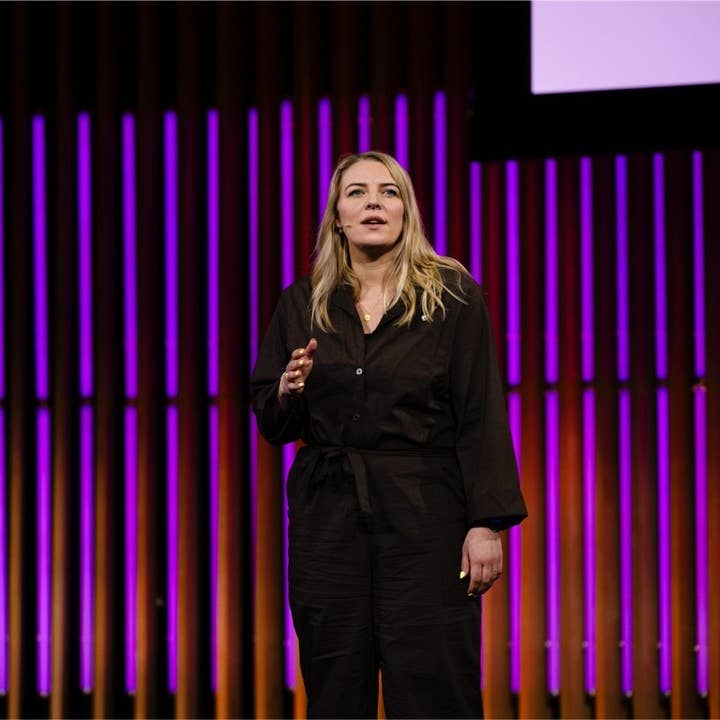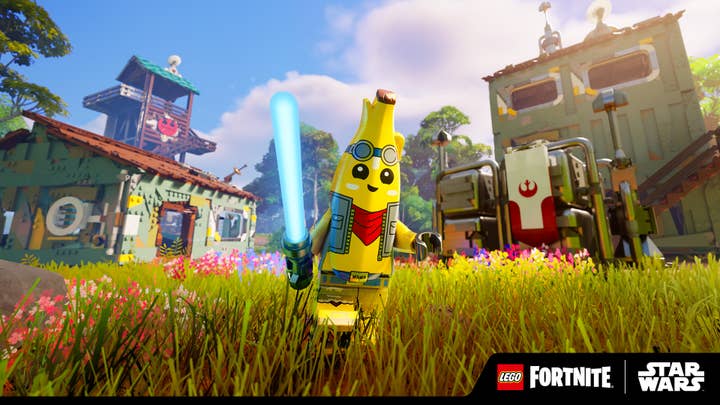Why Lego sees its gaming future in Fortnite
The Lego Group's Kari Vinter Nielsen on the possibilities afforded by allowing Epic's players to experiment with the iconic toy firm's digital assets
Lego has a storied history in the world of video games with a massive back catalogue that dwarfs even some of the biggest publishers in the world. From licenced classics like Lego Star Wars to more recent games based solely on the Lego brand like Lego 2K Drive, the variety is impressive and there have been far more hits than misses.
But now the Lego strategy is changing, with Fortnite its new key area of focus after The Lego Group's parent company Kirkbi pumped $1 billion into Epic Games back in 2022.
After almost two years of partnership between the two companies, the fruits of the deal are finally starting to show. Lego Fortnite launched late last year and proved to be incredibly popular, even beating the traditional Battle Royale in concurrent players during its launch period. Now the two companies have launched Lego Islands in Fortnite, a platform that allows anyone to use Lego assets to create games within Fortnite Creative or Unreal Engine For Fortnite, provided they stick to Lego's family-friendly rules.
"The vision for the two companies is very similar," says Kari Vinther Nielsen, Head of Play & Creator Growth at Lego Game. "I think Epic Games is a leader when it has to do with digital play, whereas we [Lego] are a leader when it has to do with physical play, so we're building really nicely on top of each other's capabilities."

The launch of the Lego experiences in Fortnite signals a new era for the company's video game portfolio, with the focus now shifting to supporting both Lego and Epic-created experiences and also those that come from the wider community through the tools available. The hope is that some of the Lego-based games devised by the Fortnite community will offer truly new experiences in the Lego universe that have never been available before, and would likely never have been considered in the old way of working.
"We're excited to see what the creators will do with [Lego UEFN tools] because they're going to do things that we hadn't thought of ourselves," says Vinther Nielsen. "If you look at our communities they're amazing at leveraging what our brain can do, and the system in play, for endless opportunities. That's what I'm expecting to see, like, I'm going to see things that I haven't thought I would see. That's the intent here, it is to really learn and evolve what we do within Fortnite."
Opening up the digital Lego brand for anyone to use, within reason, should expand Lego's games offering immensely and the hope is that these experiences can influence the wider Lego games output over the coming years. Of course, successful Lego Islands in Fortnite will generate income for Lego with the company taking a 15% cut of any money the islands make, but the more immediate focus is letting the community loose in the hope they can build completely new ideas that can become major parts of the Lego catalogue further down the line.
"For us, it's actually way more about learning what opportunities are out there, how can we evolve the digital playspace with the Lego brand in the middle," says Vinther Nielsen. "Of course, there needs to be a sustainable opportunity here, but that's not the key objective – it is really to evolve capabilities and opportunities within the Fortnite platform. And also build our brand within the digital space even more, so we can really diversify play and make play available for all kinds of players out there because we're not all the same."
It's not totally out of the question that one of the Lego Fortnite experiences becomes the most popular Lego game ever, and in that event, you can expect Lego to look at how they can support the game and grow it further.
"We're excited to see what the creators will do with [Lego UEFN tools] because they're going to do things that we hadn't thought of ourselves"
But this isn't just a case of turning over the Lego assets to the wider world and letting them do all the work; the team at Lego is also hands-on and developing their own experiences within Fortnite. The first of these was the Lego Obby Fun Island which launched in February, and you can expect the company to keep producing their own Fortnite experiences going forward.
"I think the [Lego Fortnite experience] that I'm most proud of is actually Lego Obby Fun, because it was the first game we developed ourselves internally," says Vinther Nielsen. "It took us three months to do it, to get our hands dirty with UEFN, we were four people just hammering on with that to get it ready. I love the result of that because it's whimsical, it's fun and it's a game that can evolve into many different directions."

For Lego, the focus on Fortnite is taking up a lot of their resources when it comes to games, and the company is betting that this open ecosystem where anyone can use their brand to make games will result in a wider catalogue of experiences for players. But that doesn't mean that the more traditional Lego games we know and love are finished.
"We are still looking at bringing diversified gameplay to the world and to gamers out there, that is our key objective," says Vinther Nielsen when asked about what the future holds for more traditional Lego games. "There are many opportunities [for] how we want to evolve that, but our key priority right now is our partnership with Epic Games, to see where that can take us, while we still evolve around other partnerships within the gaming space. So you will definitely be able to see both [standalone games and Fortnite experiences] in the future."
There's also scope to bring the Lego crossovers that many will be familiar with into the world of Fortnite, thanks to the regular collaborations Epic Games runs with other brands. The first example of this was the launch of Star Wars characters into Lego Fortnite, a continuation of arguably the most well-known Lego game series.
"There's no natural limit to what we can do," says Saxs Persson, EVP of the Fortnite ecosystem. "There's tremendous opportunity down the line to figure out how to make exciting crossovers - if you look at the Fortnite ecosystem in general, it's like Halloween every day. We try not to close any doors here because every new collaboration brings another fresh idea."

